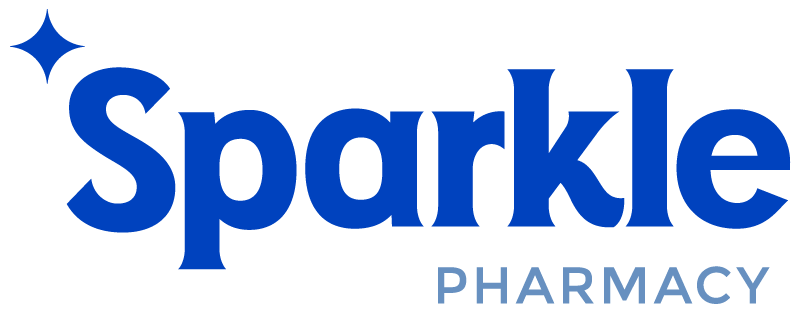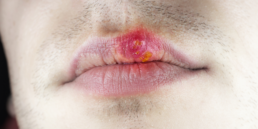Herpes labialis is characterized by the onset of small yet painful blisters, commonly known as cold sores, on or around the lips and nostrils, and in the mouth. The first occurrence of symptoms is usually in childhood.
Cold sores can appear alone or in small clusters, and usually go away on their own within 1 to 2 weeks. In most cases, a scab forms on the blister before it heals. Sometimes, tingling, itching, pain or burning may precede the appearance of blisters.
CAUSES AND TRIGGERS
Cold sores, caused by the herpes simplex virus, are transmitted through contact with the blister-like sores or saliva. They are most contagious from the time they are visible until they crust over completely. While cold sores and genital herpes are usually caused by two different strains of the same virus, the herpes virus that infects the mouth and lip area can cause genital herpes
and vice versa.
Once a person becomes infected with herpes labialis, the virus remains in the body forever, but for most, symptoms remain dormant for extended periods of time (sometimes years at a time). Others however, may have only one episode of cold sores throughout their lifetime. On occasion, events such as stress, and sun or cold exposure can cause cold sores to become active again.
TREATMENT
The following measures are recommended to avoid spreading the infection to other parts of the body, to prevent superinfection, and to accelerate healing:
- Wash hands frequently.
- Gently wash blisters with mild soap and water.
- Cover lips with a moisturizing ointment (e.g., Vaseline).
Your healthcare provider may also suggest a product to treat the virus. This type of treatment is most effective when started at the first sign of a cold sore.
Other treatments, such as oral (e.g., Tylenol) and topical (e.g., Zilactin) pain relievers, alleviate symptoms without treating the cold sore. For more information, speak to your pharmacist.
To prevent cold sores from recurring, keep the lips moisturized. Try to determine what factors (stress, sun, cold, etc.) trigger cold sore episodes and avoid them. Also, using an appropriate sunscreen before going outside is essential.
Lastly, take the following precautions to avoid spreading the virus to others, until the cold sore is fully healed:
- Avoid kissing.
- Avoid sharing utensils, cups, towels, lip balm or razors.
WHEN SHOULD I SEE A MEDICAL PROFESSIONAL?
- If there is no improvement after 14 days of treatment.
- If the cold sore worsens, or if the skin around it becomes red (it may be infected).
- If you feel sick after the cold sore appears, and if you have a fever or swollen lymph nodes.
- If you develop cold sores often (6 or more per year); your doctor may be able to prescribe medication to reduce the number of recurrences.
Free delivery on prescriptions and medical supplies.
We offer free local delivery, curbside pick-up, and Canada wide shipping.

